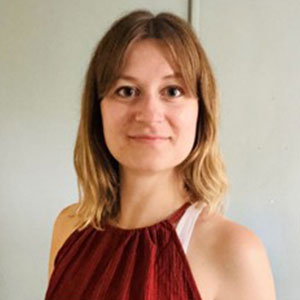Penn Postdocs in the News: Miriam Linsenmeier, Postdoctoral Fellow, awarded 2025 ALS Scholars in Therapeutics Program Award

Penn Postdoctoral Fellow Miriam Linsenmeier receives the 2025 ALS Scholars in Therapeutics Program award from the Sean M. Healey & AMG Center for ALS at Mass General, ALS Finding a Cure®, and FightMND (BWF)
PHILADELPHIA, PA — Dr. Miriam Linsenmeier, a postdoctoral researcher in the Shorter Laboratory at the University of Pennsylvania, has been selected as a 2025 recipient of the prestigious ALS Scholars in Therapeutics award—a global, two-year program co-sponsored by the Sean M. Healey & AMG Center for ALS at Massachusetts General Hospital, ALS Finding a Cure®, and FightMND.
Dr. Linsenmeier joined Penn after earning her B.Sc. in Molecular Medicine from the University of Ulm (Germany) in 2015, an M.Sc. in Biochemistry and Biophysics from the University of Freiburg (Germany) in 2018, and a Ph.D. from ETH Zurich (Switzerland) in 2022.
At Penn, she works in the lab of Professor James Shorter, focusing on the molecular mechanisms that govern the formation and properties of biomolecular condensates—structures increasingly implicated in neurodegenerative diseases.
Her ALS Scholars project targets TDP-43 proteinopathy, a hallmark of ALS pathology. Dr. Linsenmeier will employ a multi-step screening approach—leveraging biochemical, biophysical, and genetic tools—to develop novel therapeutics derived from nuclear import receptors that may resolve pathological TDP-43 aggregates.
The ALS Scholars in Therapeutics Program provides $150,000 USD per year over two years to support postdoctoral fellows and clinician-scientists in developing innovative ALS therapies. Scholars gain access to mentorship, global collaborations, and educational programming on translational drug development, while engaging with people living with ALS.
We are proud to host Dr. Linsenmeier at Penn and celebrate this milestone, which underscores both her scientific promise and the university’s commitment to advancing neurodegenerative disease research.